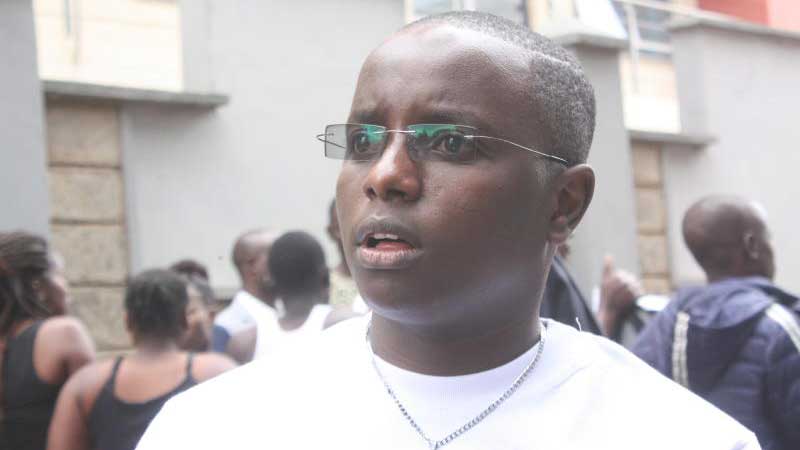
With broad shoulders and muscular arms, James Karanja looks like a typical young man with everything going for him.
But behind Karanja’s confidence is a sad story of a man who has struggled with an agonising identity crisis for as long as he can remember.
Karanja is an intersex, meaning his sex characteristics cannot be exclusively defined as male or female.
Delivered at home
“My mother delivered me at home and she was surprised that I had male and female sexual organs. She was confused; she did not know whether I was a boy or a girl, so she took me to hospital,” he said.
It is at the hospital that doctors advised Karanja’s parents to let him grow and give him the chance to decide his gender when old enough.
His parents raised him as a girl, naming him Mary Waithera. However, giving birth to an intersex put pressure on his parents’ marriage and they soon separated.
“My father believed I was cursed, so he left,” Karanja said, adding that other relatives soon abandoned her,saying he was a sign of evil.
The community did not make things any easier. Karanja remembers a priest at his church refused to conduct his dedication and christening.
Now in his 20s, the third-year Political Science student at the University of Nairobi is yet to undergo the Christian rites.
Mental illness
With time, the discrimination and stigma towards Karanja destroyed his mother. “The circumstances were too difficult for her and she could not handle it. She is mentally challenged even today,” said Karanja.
His grandmother had to raise him. Even then, Karanja says he felt that he was in the wrong body. “After fetching water, I used to carry it on my back instead of the head, like other girls.”
After primary school, Karanja joined Kambala Girls High School. He was an exemplary student, even becoming a head girl in Form Three.
Still, reaching high school meant Karanja and fellow students had reached adolescence, which intensified his gender woes.
“I used to get up at 3am to shower before other girls. They grappled to understand me, asking difficult questions like why I never used my sanitary towels.”
By the time he was in Form Four, his voice had deepened and his physique made it clear that he was male. “Girls would send me love letters, so the administration sent me away, accusing me of trying to introduce lesbianism in the school.”
When he returned to school, he confided in one of his teachers, who advised him: “You can drop out and become no one or you can persist and complete your education and make something of yourself.”
After completing high school, and now sure about his sexuality, he applied for a national identity card as James Karanja instead of Mary Waithera.
Despite overcoming his intersex barrier, his previous identity still poses a challenge. His school certificates bear the name Mary Waithera and he says the Kenya National Examinations Council has rejected requests for a name change.
In 2016, Karanja met Kiambu Woman Representative Gathoni wa Muchomba, who is also the founder of Gamafrica, a foundation that helps intersex children.
Muchomba says there is need for policy change for intersex individuals to change their documents. “I know of a student who scored B in Form Four but was denied admission into university because the gender was unclear,” reveals Muchomba.
A group of Kenya’s intersex such as Karanja, along with MPs like Muchomba, has joined forces with the Task-force on Policy, Legal, Institutional and Administrative Reforms Regarding Intersex Persons to help the intersex.
First step
On Monday, the task-force — formed in May last year by the Office of the Attorney General and Department of Justice —took its first step by launching a nationwide data collection programme intended to establish the exact number of the intersex in the country.
“It is estimated that between 1.7 and 3 per cent of the global population is intersex. Consequently, this group could be approximated to be population of 1.4 million persons in Kenya,” said Mbae Ng’ang’a, the chairman of the task-force.
 The Standard Group Plc is a multi-media organization with investments in media
platforms spanning newspaper print
operations, television, radio broadcasting, digital and online services. The
Standard Group is recognized as a
leading multi-media house in Kenya with a key influence in matters of national
and international interest.
The Standard Group Plc is a multi-media organization with investments in media
platforms spanning newspaper print
operations, television, radio broadcasting, digital and online services. The
Standard Group is recognized as a
leading multi-media house in Kenya with a key influence in matters of national
and international interest.











